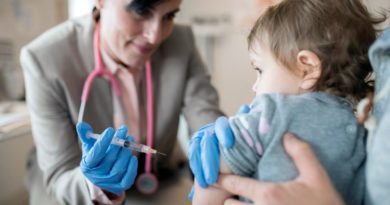Covid-19 vaccines don’t cause immunodeficiency syndrome

16 February 2022
What was claimed
People vaccinated against Covid-19 may be experiencing a form of vaccine-induced acquired immunodeficiency syndrome.
Our verdict
False. This is based on incorrectly using Covid-19 case rates to claim being vaccinated increases a person’s risk of being infected with Covid-19.
An article published by a blog called The Exposé claims that people vaccinated against Covid-19 may be experiencing a form of “vaccine induced acquired immunodeficiency syndrome”, otherwise labelled as vaccine induced AIDS.
As evidence it claims that vaccinated people are more likely to catch Covid-19 than unvaccinated people, showing that vaccines not only don’t protect against Covid-19 but actually reduce the immune system’s natural ability to fight infection.
The Exposé has repeatedly made these claims during the pandemic, and each time they are based on false reasoning and inappropriate use of official data.
The central argument made by The Exposé is that the Covid-19 case rate is higher among vaccinated adults than unvaccinated adults, as reported by the UK Health Security Agency (UKHSA).
It then compares these numbers to claim vaccine effectiveness against Covid-19 is minus 183%, and that vaccines increase the chance of someone being infected with Covid-19.
But the UKHSA says: “The vaccination status of cases, inpatients and deaths should not be used to assess vaccine effectiveness.”
That’s because being vaccinated is not the only difference between vaccinated and unvaccinated people.
For example, the UKHSA says:
- testing behaviour is likely to be different between the groups meaning the case rates may not represent true infection rates to different degrees
- people who are more at risk of Covid-19 are more likely to be vaccinated
- the two groups may behave differently with regards to social interactions
- people who have never been vaccinated are more likely to have already caught Covid-19, giving them some natural immunity
These other factors, rather than vaccination itself, may be driving some of the difference in case rates between the two groups.
Perhaps the biggest issue with comparing case rates is that the case rate among unvaccinated people is very uncertain, because we simply don’t know for sure how many unvaccinated people there are in total.
The UKHSA estimates this by subtracting the number of vaccinated people (which can be accurately counted based on vaccination records) from the total number of people on GP registers.
But the number of people on GP registers may not reflect the actual number of people eligible for vaccination in the UK.
This data is expected to overestimate the total population of England (and therefore the total number of unvaccinated people), as it includes people who are still registered with the NHS but moved abroad for example, and may double count people registered with more than one GP.
In November, the Office for Statistics Regulation warned that if you instead started with population estimates from the Office for National Statistics (which are lower than the number of people on GP registers), they would suggest a much lower estimate for the total number of unvaccinated people.
This in turn would make the case rate among unvaccinated people appear much higher than it does in the UKHSA data.
In essence, the case rate data from the UKHSA shouldn’t be used to estimate vaccine effectiveness. Therefore it shouldn’t be used to argue that vaccination increases the risk of someone being infected with Covid-19.
Nor is this evidence of vaccines inducing a form of AIDS, a claim which has been made often in recent months.
In its vaccine surveillance report, the UKHSA compiles data from various studies showing three doses of the Covid-19 vaccine gives a high level of protection against symptomatic disease, hospitalisation and mortality with the Delta variant.
Against Omicron, three doses gives a high level of protection against death and hospitalisation, though protection against symptomatic disease is far lower.
While there is evidence that these vaccines become less effective over time, there is no evidence that vaccination reduces your protection against Covid-19.
Image courtesy of CDC, free to use under the Unsplash Licence
This article is part of our work fact checking potentially false pictures, videos and stories on Facebook. You can read more about this—and find out how to report Facebook content—here. For the purposes of that scheme, we’ve rated this claim as false because the data used is not appropriate to estimate vaccine efficacy rates and there is no evidence vaccines harm the immune system.


